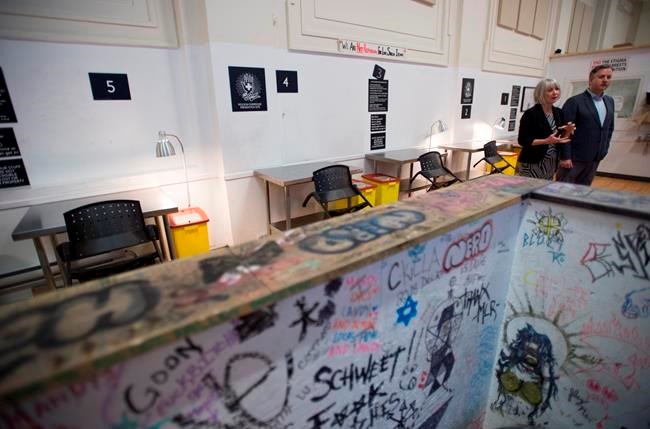VANCOUVER — City councillors in Vancouver voted unanimously this week to ask the federal government to decriminalize small amounts of illicit drugs for personal use, a decision advocates hope will blaze a trail in other municipalities.
It's within Health Minister Patty Hajdu's power to grant an exemption to the Controlled Drugs and Substances Act to allow decriminalization across Canada, said Sandra Ka Hon Chu, the director of research and advocacy for the Toronto-based HIV Legal Network.
"She can issue a very sweeping exemption across the country, and that would be the ideal outcome," said Ka Hon Chu, who is a lawyer.
But the process may be faster if requests for an exemption to the law are made locally, she said, noting the Toronto Board of Health voted last week to repeat an earlier call for decriminalization.
The motion also mentioned that the opioid crisis is worsening during the COVID-19 pandemic, which has disrupted the flow of illicit drugs into Canada, resulting in a more toxic supply. It's also curtailed access to key harm reduction services, such as supervised consumption sites.
"We hear public health officials across the country saying drug decriminalization is really necessary, it's a necessary piece of the puzzle, but that's not happening," said Ka Hon Chu.
The vote in Vancouver came after the BC Coroners Service reported 162 people died from using toxic illicit drugs in the province last month, a 116 per cent increase from October 2019.
City staff will now write to federal officials seeking an exception to the act, which is the same process used to create the city's first sanctioned supervised drug injection site in 2003.
Mayor Kennedy Stewart has said the city will work with police, the local health authority, community groups and people who have experience with drug use to hammer out the plan for decriminalization.
Caitlin Shane, a staff lawyer focused on drug policy for Pivot Legal Society, said she's cautiously optimistic Ottawa will approve Vancouver’s application.
B.C. Premier John Horgan, the Vancouver Police Department and provincial health officer Dr. Bonnie Henry support the elimination of criminal consequences for possessing small amounts of illicit drugs for personal use. Led by Vancouver Chief Adam Palmer, the Canadian Association of Chiefs of Police also endorsed decriminalization earlier this year.
But Shane is concerned about how decriminalization would work in practice. She and other advocates want the plan to be broad and long lasting.
If granted, the exemption should include everyone in Vancouver, she said, not only those who are deemed at risk. It should also cover all illicit drugs, not just certain ones.
"Street drugs are vastly contaminated at this point and it would be really impractical and difficult to parse out which substances are included and which aren't."
Shane said she's also wary of the role of law enforcement after decriminalization, because police continue to confiscate drugs from her clients in the Downtown Eastside, even if they're not criminally charged.
"That comes with a whole host of other problems, you know, people get their drugs confiscated and then they have to hustle all day to get a new supply and it kind of perpetuates this whole cycle."
If simple possession is decriminalized, police would have no legal grounds to confiscate the drugs, she said.
"In my eyes, it would amount to theft of personal property."
In Portugal, which decriminalized simple possession 20 years ago, people found using drugs are required to undergo health assessments and may be fined by a so-called dissuasion commission, Shane added.
"We don't want to replace a criminal regime with an administrative regime," she said.
"We need to come up with a Vancouver model."
Drug use is still heavily stigmatized in Portugal, said Ka Hon Chu.
"If police are still surveilling you, watching your every move and potentially branding you as someone who uses substances, you're less likely to access health services because of the stigma," she said.
"We're hoping there's no mandatory referral to treatment in Canada."
Simi Heer, the director of public affairs for the Vancouver Police Department, said it's not a general practice to seize drugs from people using them, but there are times when they must be seized.
"For example, if an officer finds drugs while searching someone for a criminal investigation, they are not allowed to give those drugs back," she said in an email.
On fines and sanctions, she said police believe "a system needs to be in place to direct people down the health-care path" and there must be additional support services.
"It's too early to speculate on what systems need to be in place to make that happen, but that can be determined by health, government and public safety partners working together."
There's no indication how long Ottawa might take to review Vancouver's request once it's submitted, but Stewart has said Hajdu has the authority to move quickly.
This report by The Canadian Press was first published Nov. 27, 2020.
Brenna Owen, The Canadian Press



